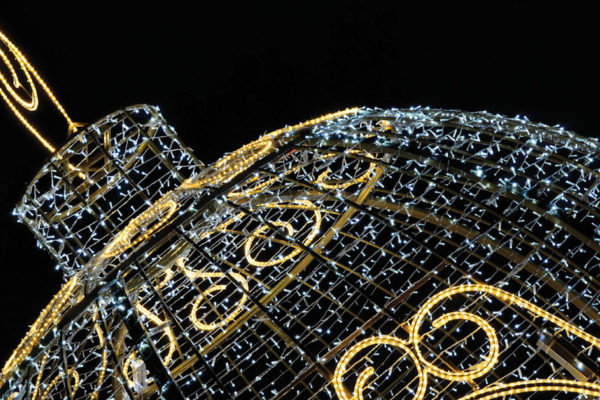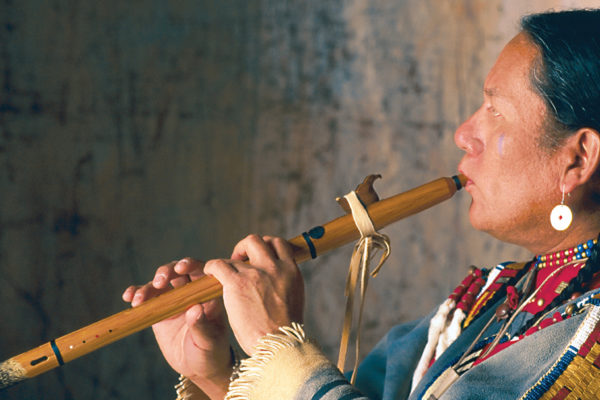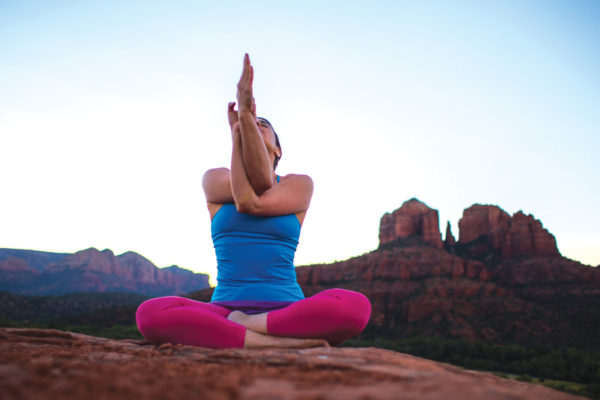Continued (page 3 of 3)
The last thing you did on screen was in 1999. Did you officially retire?
Yeah. I saw what was coming. I’d seen my friends reach that wall where they weren’t getting calls. They were doing 80 auditions to land one job, always out there. Your confidence starts to creep down. I didn’t want to be there. So I saved every dime, and I knew a builder in Flagstaff. I approached him about going into business building townhomes, so we did that. That became my focus beginning in 1995. We pooled all of our money, but it paid off, and I felt secure.
Why Flagstaff?
We went to L.A. to look for a place on the advice of an agent, who said I should get out there. This was in ’86. So we got there, and I just didn’t like it. There was that ugly, competitive environment. Everything is the business. Everywhere you go, you’re overhearing something about the business. Everybody’s got a script in their hand, and everybody is rushing to an audition. I didn’t find it very relaxing or refreshing. We passed through Flagstaff, and I thought I could commute. We moved to Flagstaff in ’86. All the time we were shooting Twin Peaks, I was flying back and forth.
When did you move to Sedona?
1997. [My wife and I] talked my mother-in-law and father-in-law into coming to Flagstaff, but the elevation wasn’t good for my father-in-law. So we moved them to Sedona. They started to need more attention, and I was a little tired of the snow, so that’s how we got down here. I love it here. Somebody told me that I’d get tired of looking at the rocks or that I wouldn’t look at them after a couple of years, but I always look at them, and I like being out in them. And I’ve got a shitload of hobbies. I play guitar. I’ve got two basses and two lead guitars. I have a little music studio with synthesizers and keyboards – hold overs from the days when I had a band. I had a band in Kansas City. It was a rhythm-and-blues band. We were a working band, six days a week. Some of my new hobbies include sewing – leather to leotards – and woodworking. I used to have some antique cars. I like to read. I’m a history nut – I love ancestry.
You were born in Florida, right?
Yep. But I grew up in Kansas City. My dad was in the service so we moved around a lot. When I was 23, I moved to England to study acting. It was intimidating. Everyone was so professional – these weren’t just students, they were grownups. They were so poised and had such a command of the language.
So you always knew you wanted to act?
Well, I wouldn’t say that. When my band fell apart, I really missed it. I was really anxious about that. I had a brother and a cousin in the band. When it fell apart, I was trying to decide what to do. I’d done a couple of high school plays, and I thought that might be a fun way to go. I hadn’t given it much more thought than that.
That’s amazing considering the amount of people who want to act and can’t break into the business.
It’s funny, when I was a kid, I was into inventing things. I didn’t play cowboys and Indians. I wasn’t much of a pretender, and I think a lot of good actors start pretending when they are real small. It was something I learned to do. I wasn’t comfortable at first, when the camera was right there [mimics camera an inch from the face] and you gotta be honest. When that camera is staring at you, you cannot bullshit it. You can’t do something that you think looks right. If you don’t feel it, it doesn’t work. I had to learn a lot about reaching deep and in the end, I suppose I felt it was a craft. I learn how to do it, and I could pull the triggers and the strings necessary to feel the emotions. There’s an awful lot of emotion in the revival series.
There’s a lot of emotion in the original series.
Do you remember how Nadine [Hurley, played by Wendy Robie] lost her eye?
Of course. In the hunting accident.
My favorite moment from the original series was explaining how that happened to Nadine. That was a big moment. Ed loved Nadine. He was devoted to her. It’s not like he was trying to get rid of her. But why? He’s obviously not having an affair with Norma, and he never would, so that was a big moment.
MORE SEDONA MONTHLY INTERVIEWS: Bruce Hornsby, Chicago, Cody Horn, The Band Perry, John Waters, Leighton Meester, Ed Asner, Susan Sarandon, Tony Curtis, Joan Collins, Martin Sheen, Emilio Estevez, Lea Thompson, Don Black, Beatrice Welles, Frances Fisher, Gary Sinise, Rita Rudner, Michael Moore, Tim Daly, Maynard James Keenan, Richard Schiff, Connie Stevens, Don Hahn, Ed Harris, Marla Sokoloff, Bill Plympton, Robert Osborne, Jane Seymour, Robert Shields
MOVIE CRAZY? Purchase a copy of Arizona’s Little Hollywood: Sedona and Northern Arizona’s Forgotten Film History 1923-1973



